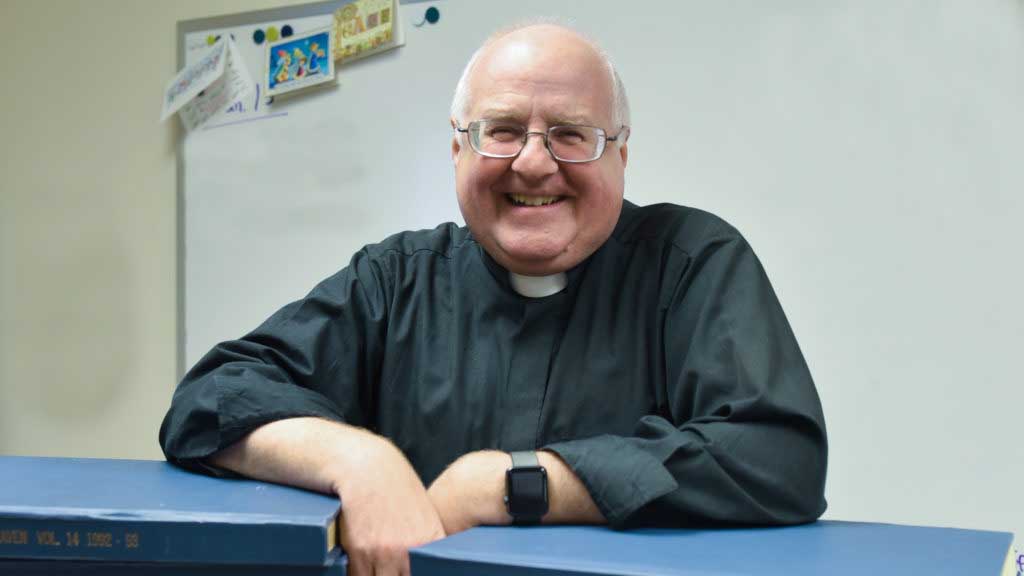
by Father Mark Goldasich
“We have two pandemics, one of the body and one of the soul.”
I can’t stop thinking about these words, written by Leota Roesch. (Found in the Oct. 5 “Weekday Homily Helps.”)
Roesch identified one of the sins of the soul in our country as racism. To that, I’d add selfishness and greed.
With that in mind, this story of a young man and his father is worth pondering:
One day, a father of a very wealthy family took his son on a trip to the country with the firm purpose of showing his son how poor people live. They spent a couple of days and nights on the farm of what would be considered a very poor family.
On their return, the father asked the son, “How was the trip?”
“It was great, Dad,” said the boy.
“Did you see how poor people live?” asked the father.
“Oh, yeah,” said the kid.
“So, tell me,” said the dad, “what did you learn from the trip?”
The son answered, “I saw that we have one dog and they have four. We have a pool that reaches to the middle of our garden, and they have a creek that has no end. We have imported lanterns in our garden, and they have the stars at night. Our patio reaches to the front yard, and they have the whole horizon. We have a small piece of land to live on, and they have fields that go beyond our sight. We have servants who serve us, but they serve others. We buy our food, but they grow theirs. We have walls around our property to protect us; they have friends to protect them.”
The father was absolutely speechless.
Then his son added, “Thanks, Dad, for showing me how poor we are!” (Found in “Top 100 Motivational Stories,” by Meir Liraz.)
One of my profound life lessons came 40 years ago when I was privileged to spend a summer as a deacon in the Diocese of Nyeri in Kenya, East Africa. I went there convinced of all I had to give to the people. Little did I suspect how much I would receive instead.
I worked at two mission stations — one at Njabini and the other at Gatarakwa — among the rural Kikuyu people, whom the world would consider materially poor. However, they were rich in so many other ways.
The people that I met taught me the lesson of slowing down, especially when it came to prayer and Sabbath rest. Sunday Mass lasted for hours because people arrived early, the Mass itself started “whenever the visiting died down,” and then they continued to congregate for hours afterward. There was no danger of parking lot congestion, either, since everyone walked to church!
The Kenyans showed me what hospitality was all about. They welcomed me into their homes — often made of mud with a thatched roof and dirt floor — and, because I was the guest, I got “the” chair, usually made from the roots of a tree. I was always offered hot tea as well and was served first.
The people there modeled generosity. Our Sunday collection typically consisted of vegetables, fruits and, once, even a live chicken that rode home with me in the mission’s Land Rover. They didn’t have much, but what little they had was shared.
And I’ll always treasure their singing — done with abandon and joyfulness, from the heart — especially at church and in the schools.
Every time World Mission Sunday rolls around (this year on Oct. 18), my mind floats back to those days in Kenya. For it was there, among the Kikuyu people, that I first realized how poor I really was.


